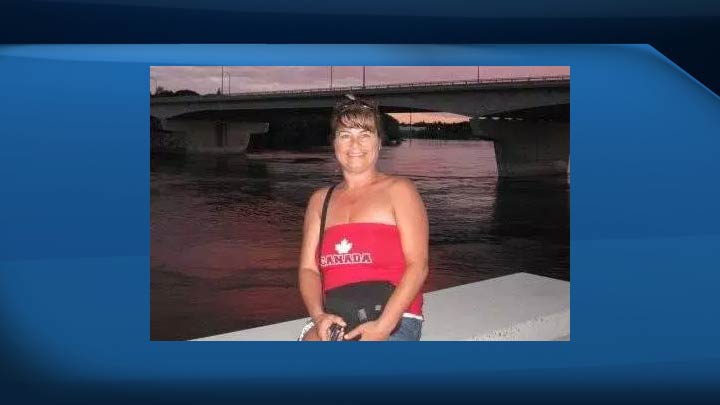Will a murder confession to undercover police officers that he killed Carol King ultimately seal Joseph “David” Caissie’s fate?

On Thursday in Saskatoon, closing arguments were made in the first-degree murder trial, a case so complex that court proceedings took six weeks and a verdict won’t be delivered until the new year.
King went from being a missing person to a murder victim in August 2011 with the defence saying Caissie didn’t do it.
“I would suggest that given what the evidence is and what the crown’s theory is, the timeline doesn’t allow an opportunity to accomplish the things that had to be accomplished,” Caissie’s lawyer Kevin Hill said outside of court.
King was last heard from Aug. 6, 2011, at around 3:45 p.m. Hill argued in court there is no way Caissie could have committed the murder and covered it all up before returning to Olds, Alta., by 9:03 p.m. that evening.
“His time is unaccounted for between noon and 9 p.m. on that day,” Crown prosecutor Matthew Miazga said.
“So he had nine hours to travel to the Herschel-area to do what he did, all the things that happened were in close proximity to each other six or seven miles apart.”

Get daily National news
A sufficient amount of time, argued the Crown, for the accused to kill King that afternoon then return to Alberta.
The most damning evidence, argued the Crown, would come from Caissie’s own mouth. A confession to undercover police officers that he killed her as part of a Mr. Big sting.
“They were consistent. They were repeated, the same statements repeated several times over,” Miazga said.
“I think I mentioned one of the statements in particular he was quite passionate about being believed and seemed to be quite upset that people weren’t believing him and it was told in an environment where he was believing he was speaking friends, colleagues of his.”
The defence argued that Caissie was baited by big money as part of the sting which led to a false confession.
“He lied to get a job,” Hill said in court.
Plus, Caissie told officers two different versions of how he killed King – by choking her then the story switched to stabbing her – said the defence. According to Hill, the compounding pile of inconsistencies in this case are just simply too hard to ignore.
“The physical evidence and initial investigation when compared to the Mr. Big operation it doesn’t match,” Hill added.
“So the Crown is going to require the judge to pay attention to certain things and believe certain aspects but disbelieve other aspects that are part and parcel of the same operation.”
Miazga underscored in court the Crown doesn’t have to prove how Caissie killed King, just that he did. He also noted the evidence in the case was quite extensive and the Crown doesn’t need to prove every little tidbit of evidence in the case, just the essential elements.
“Mr. Caissie did in fact cause the death of Ms. King and he planned to do so which makes this first-degree.”
As for a motive, court heard about financial difficulties between the accused and victim. As well as harassment in the weeks leading up to King’s death. She had a follow-up appointment with police on Aug. 6, 2011, but never made it.
“I think Mr. Caissie was a stalker, he was a controlling person,” Miazga said.
“You heard evidence about that and if you look at domestic cases in this province often there isn’t a lot of motive other than you can’t control your partner and this is the end consequence.”
In closing, the judge said the stakes could not be higher in this case with a verdict set to be delivered on Jan. 4.



Comments
Comments closed.
Due to the sensitive and/or legal subject matter of some of the content on globalnews.ca, we reserve the ability to disable comments from time to time.
Please see our Commenting Policy for more.